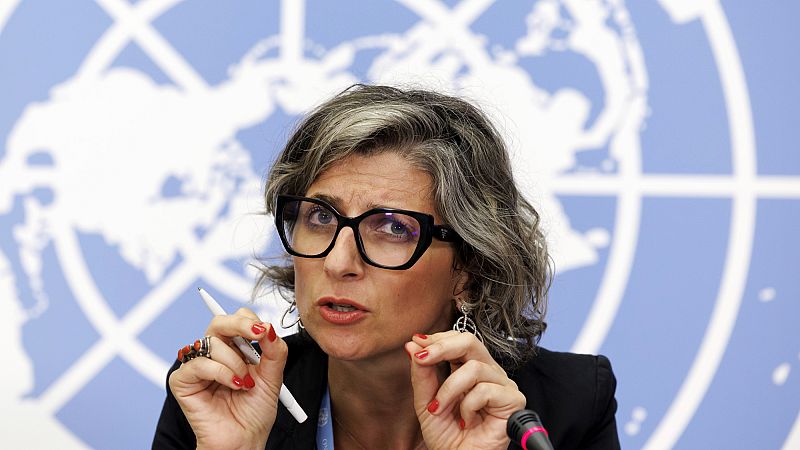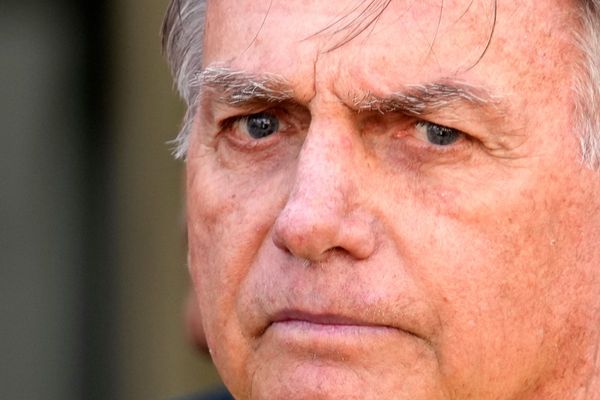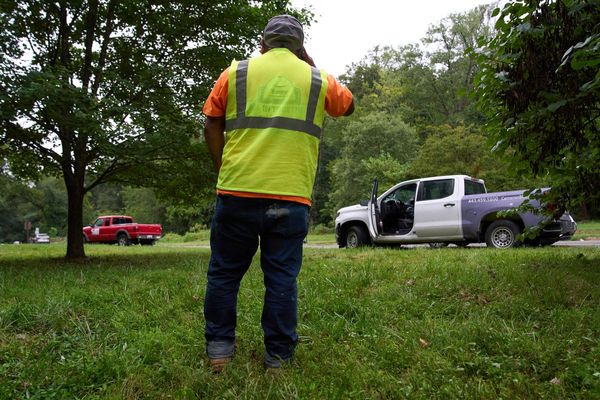
The Trump administration said on Wednesday that it was issuing sanctions against UN Special Rapporteur on the situation of human rights in the Palestinian territories, Francesca Albanese, who's been vocal about Israeli human rights abuses against the Palestinian people amid its 20-month old war on Gaza.
It comes as Israeli Prime Minister Benjamin Netanyahu visited Washington this week to meet with US President Donald Trump to discuss Washington's proposed ceasefire in Gaza and the release of hostages.
It remains unclear what the practical consequences of the sanctions are and whether Albanese will be able to travel to the US.
Albanese is an Italian human rights lawyer who has been vocal about what she has routinely described as the “Palestinian genocide” in the Gaza Strip. Both Israel and the US have denied this accusation, maintaining that Israel carries out targeted operations against a terrorist organisation, while taking precautions to minimise civilian harm.
Outside experts, such as Albanese, do not represent the United Nations in an official capacity and have no formal authority. However, they report to the council as a means of monitoring countries’ human rights records.
In recent weeks, Albanese has urged other countries to impose sanctions on Israel in order to stop the war on Gaza. She has also been a strong supporter of arrest warrants issued by the International Criminal Court against Netanyahu and other top Israeli officials, including former Defence Minister Yoav Gallant.
More recently, Albanese issued a report naming several large US companies among a list of other enterprises who aid what she described as Israel's occupation of Gaza.
Her list focused on companies which provided weapons to the Israeli military as well as manufacturers of equipment that have bulldozed and reduced to rubble Palestinian homes and properties.
Liz Evenson, international justice director at the Human Rights Watch, said the decision by the US government “is actually all about silencing a UN expert for doing her job – speaking truth about Israeli violations against Palestinians and calling on governments and corporations not to be complicit.”
“UN and ICC member countries should strongly resists the US government’s shameless efforts to block justice for the world’s worst crimes and condemn the outrageous sanctions on Albanese," he added.
Israeli officials slammed Albanese’s report, denouncing it as “legally groundless, defamatory and a flagrant abuse of her office” and accused her of having “whitewashed Hamas atrocities.”
“Albanese's campaign of political and economic warfare against the United States and Israel will no longer be tolerated,” US Secretary of State Marco Rubio wrote in a post on social media. “We will always stand by our partners in their right to self-defence.”
The US had not previously addressed concerns with Albanese head-on because it did not participate in either of the two UN Human Rights Council sessions this year. The Trump administration had withdrawn Wahington from these earlier this year, shortly after the 47th US president reassumed office on 20 January.
UN High Commissioner for Human Rights Volker Türk commented on the sanctions levelled against Albanese.
In a statement, Türk urged the US to promptly reverse sactions against the UN expert for work she has undertaken under the mandate on the situation of human rights in the occupied Palestinian territory.
The UN human rights chief noted that special rapporteurs, along with others in the UN human rights umbrella address sensitive, often divisive issues that are of international concern.
He added that in the face of fierce disagreement, UN member states should "engage substantively and constructively" as a means of ironing out divisions, rather than resorting to "punitive measures".
"Attacks and threats against Special Procedures mandate holders, as well as key institutions like the International Criminal Court, must stop. The solution is not less, but more, debate and dialogue on the very real human rights concerns they address."







